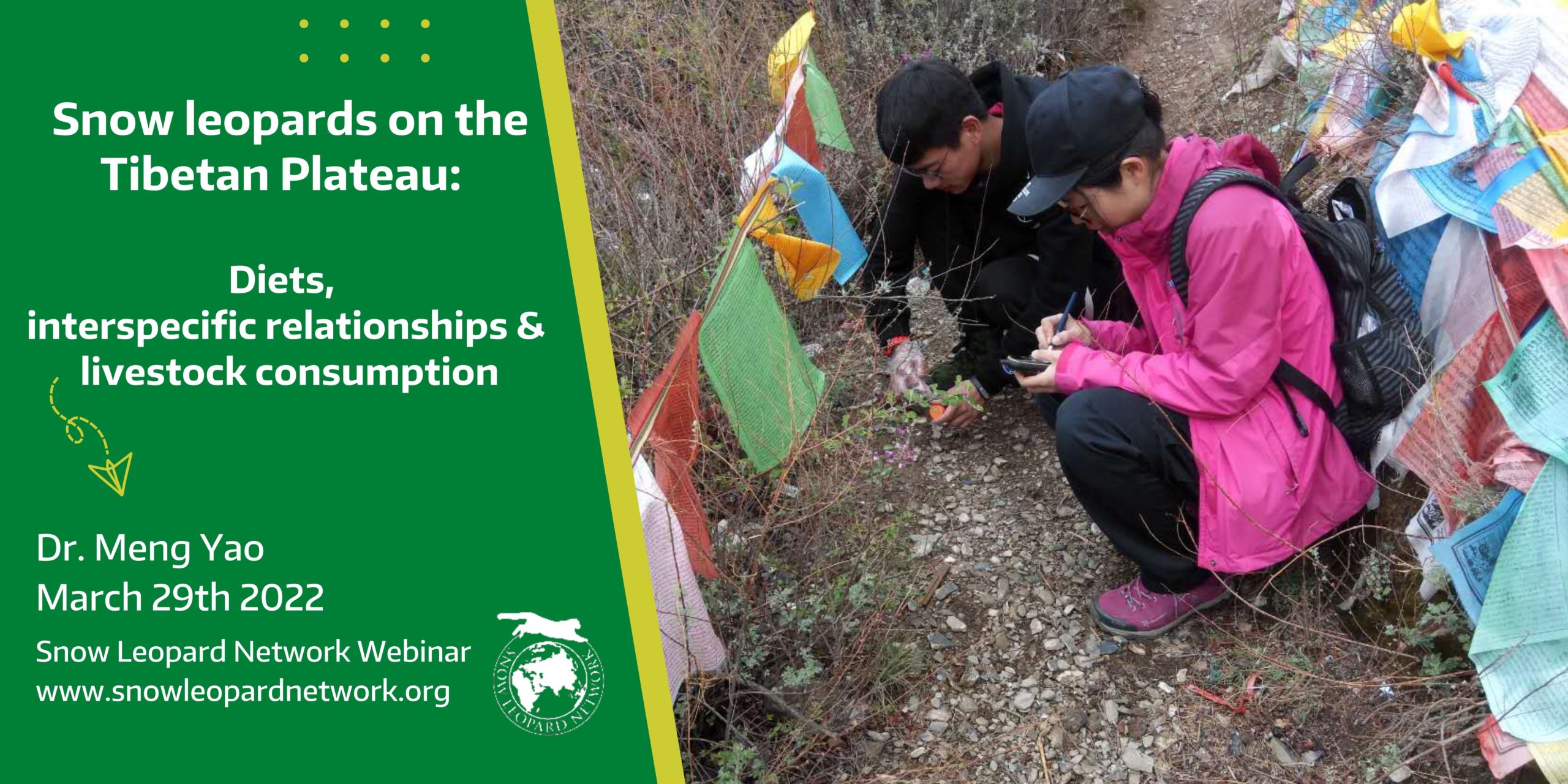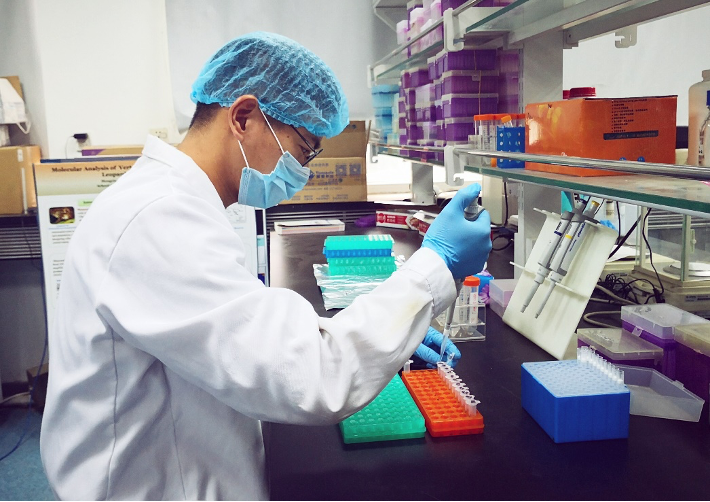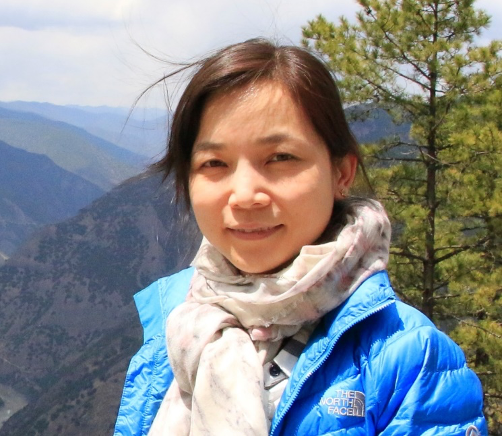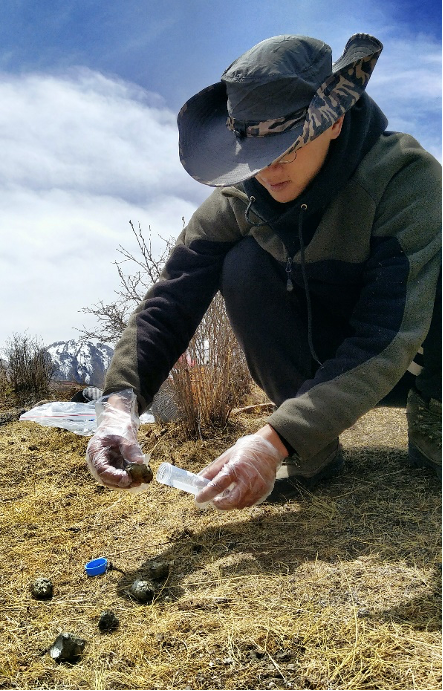
The Snow Leopard Network is pleased to announce our 4th #snowleopard webinar of 2022. SLN is delighted to bring back a focus on exploring snow leopard Genetics. In November 2020, we hosted an overview discussion with Dr. Ramakrishnan and a launched with partners a training initiative specifically focussing on genetic research techniques.
We welcome Dr. Meng Yao and Dr. Cheng Chen who are leading genetic research on snow leopards and other mountain carnivores on the Tibetan Plateau, China. This Webinar allows us to meet researchers at Peking University whose work bridge the world of snow leopards with wider prey and predator interactions. Genetic methods and their applications keep evolving and offer new possibilities of understand and conserving threatened wildlife -> join us for a discussion on how teams are growing and taking forward these approaches with snow leopards and other species.
About the Talk
Dr. Meng Yao will open the event with the main presentation. As many SLN members know, snow leopards are highly elusive and it is extremely difficult to observe their behaviour in the field. Luckily, the advances of molecular tools enable a peek into their mysterious life on the Tibetan plateau. Using DNA extracted from snow leopard faeces, it has been possible to decipher snow leopard diets and food preferences at fine species resolution, and analyze their niche relationship with other co-existing carnivores in the Minshan Mountains of Sichuan and the Sanjiangyuan Region of Qinghai, China. In addition, insight into the factors affecting the carnivore’s livestock consumption has been gained. We discuss how this study links to conservation management design and mitigates human-snow leopard conflict. Dr. Cheng Chen will join us as Discussant sharing her perspectives from wider work on snow leopard genetics in China.

About our Guests

Meng Yao received Ph.D. in molecular cellular & developmental biology from the University of Michigan. She began her appointment at Peking University in 2009, first as an Assistant Professor and currently as a Research Associate Professor. She is a molecular ecologist and conservation geneticist whose research interests include food-web interactions, environmental DNA-based biodiversity monitoring, and population genetics. She applies faecal DNA metabarcoding to reconstruct feeding habits and niche relationships among mammalian carnivores and aquatic eDNA to the detection of invasive species and biodiversity.

Cheng Chen is Program Director of the Nature Watch Program, in Shanshui Conservation Center. She worked on population genetics of Sichuan snub-nosed monkey and snow leopard landscape genetic conservation in Sanjiangyuan during her PHD and postdoc with the Institute of Zoology, Chinese Academy of Sciences and Center for Nature and Society of Peking University. She has established a genetics research platform for supporting wildlife conservation in Sanjiangyuan National Park. Since 2015, she has been continuously coordinating and promoting the Snow Leopard China network. Since 2019, she started the current position as Director of the Nature Watch Program, and is mainly focused on and dedicated to promoting the mainstreaming of biodiversity conservation from the perspectives of biodiversity databases, policy advocacy and sustainable investment.
Date/Time
Tuesday, 29th March, 2022 at 16:00 Beijing time
Register today
Please note
- If you have never used Zoom before, we recommend that you try the link 10 minutes before the start of the lecture.
- Please feel free to write questions in the comment area and there will be time for questions/discussion at the end of the talk.
- Please note that the session will be recorded and later featured on the SLN website. If you have concerns about this please let us know before the session.

